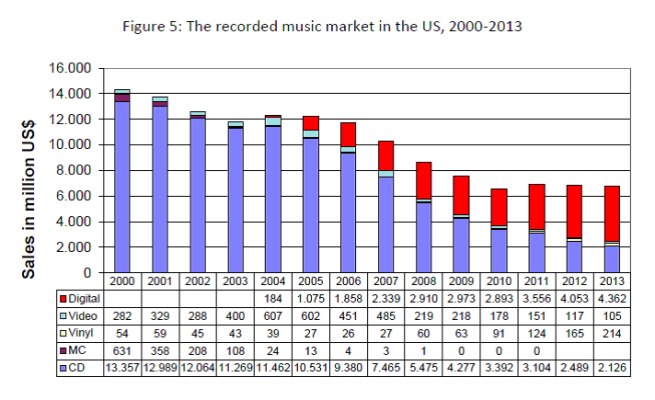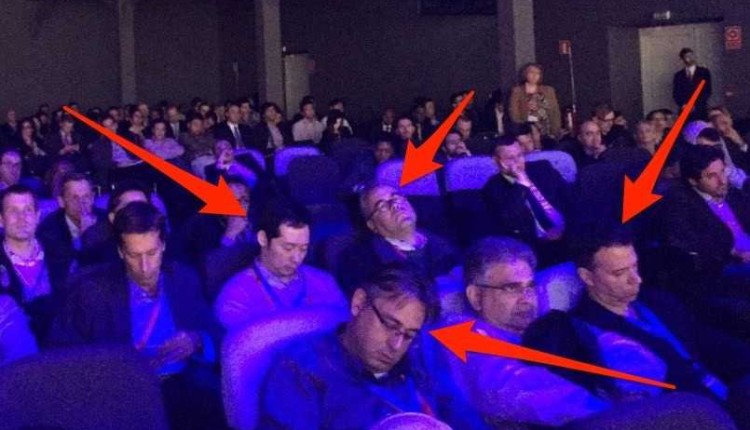A renewed focus on the value of music comes as a transition point for the record business. Rob Wells, Universal Music Group’s president of digital who brokered deals with “freemium” services like Spotify, left the company in late February. Now the company is rethinking the value of unlimited free streaming, according to a label source. At the same time, Apple’s upcoming subscription service, slated for a June launch according to an industry source and media reports, will forego the freemium model for a paid-only approach. It’s an approach Beats Music co-founder Jimmy Iovine, an executive at Apple since the acquisition of Beats Electronics, has consistently favored.
Negotiatons for Apple’s upcoming subscription service are evidence labels are standing firm on pricing. Industry sources say Apple has backed down from its effort to lower monthly pricing for its subscription service to $7.99 from $9.99. Apple would have to absorb the loss if it sets a price lower than the standard $9.99.
Few specifics about Apple’s subscription service are known at this time. It is widely believed that Apple will replace the Beats Music name with the iTunes brand. Label insiders say Apple has not revealed features or given demos. There is no indication if Apple will integrate iTunes Radio with a subscription service. But these insiders believe Apple is confident it can create a service that stands out from competitors and delivers enough value that consumers will pay the full price.
Apple is said to be talking to labels and artists about exclusives for its upcoming subscription service. An industry source dismisses rumors that Apple will be able to outmaneuver and outbid its competitors on exclusives for most key releases. “Apple is one of the biggest companies in the world. If they want exclusive content, they’re going to have to get out the checkbook.”
The music industry eagerly awaits Apple’s reboot of Beats Music, and the timing couldn’t be more perfect. The showdown between Apple’s pay-only business model and Spotify’s freemium model could change how people think about using free music to get paid music.
Industry sentiment about free music is years in the making. The previous decade was marked by brutal declines in revenue that reshaped companies — and the entire structure of the music business. iTunes provided a helpful transition to digital formats. Fives years later, services like Spotify won labels’ over, with a pitch to both generate revenue and reduce piracy. Now there are dozens of other streaming services with licensed content.
There has been a frenzy of licensing activity as labels became more flexible in their terms with digital services. “The last two or three years has been about stopping the [sales] decline and creating as many platforms and as many services and opportunities to capture money,” Universal Music Group chief Lucian Grainge said last year at a Wall Street Journal conference.
Now the smoke is clearing and different attitudes are forming. Some labels feel Spotify should have more than 15 million subscribers, sources tell Billboard. Apple’s pay-only service could be a turning point. If Apple is successful in attracting large numbers of subscribers without unlimited, or at least significant, free listening, Spotify’s business model could fall under more scrutiny. “Spotify is good at giving it away for free, but it’s bad at getting people to pay for it,” says an industry source.
The complaints from artists have grown louder. Artists have been vocal about streaming services’ royalties and the lack of transparency in the licensing terms. The freemium model itself has come under fire. Taylor Swift and Bjork have recently expressed their unwillingness to make music available to a subscription service’s ad-supported tier. “This streaming thing just does not feel right. I don’t know why, but it just seems insane,” Bjork told Fast Company last month.
Prompted by the public sparring between Taylor Swift and Spotify, Warner Music Group CEO Stephen Cooper brought up the topic in an earnings call in December. He voiced support for ad-supported streaming but warned that services with a “freemium” model — the object of Swift’s scorn — must clearly differentiate the benefits of the paid and ad-supported tiers.
Spotify has long taken the positioon it ad-supported tier is an effective way to acquire customers. Four in five subscribers comes from the ad-supported service, says Jonathan Prince, Spotify’s global head of communications and public policy.
Indeed, Spotify’s freemium approach has allowed the company to scale far better than its competitors. Second place Deezer’s 6 million subscribers and 16 million monthly listeners are well behind Spotify’s 15 million and 60 million, respectively. Rhapsody, which has a paid-only model, reached 2.5 million subscriber last month.
Prince also argues Spotify brings in consumers who hadn’t previously paid for music. As for the worry that Spotify is eating into download sales, Prince says Spotify’s internal research shows only 12% of former iTunes users use Spotify. “We’re on the same page as the labels in wanting to rebuild the music industry,” he says.
One option is to implement listening caps. Spotify had listening caps in place in Europe until January 2014 and had various restrictions in place in various countries. (For example, until March 2013 free users in the U.K. could play an individual song up to 5 times.) Sources say labels believe listening caps would help differentiate between free and paid services.
But labels are also realistic about the need to provide a free service. “People don’t think you can just turn it off,” says a label source. As Cooper said in December, a free tier can be an effective conduit to subscriptions. And free streaming has undoubtedly helped reduce the number of people that turn to illegal channels. There is ample research — some by Spotify — that shows music piracy has declined in many countries.
There’s also an element of geopolitics at play. A weakened Spotify could help create a more powerful Apple subscription service. That would remove the comfortable, valuable counterweight to Apple that labels don’t have in the digital download space. There’s even some doubt that Apple is out to beat Spotify rather than grow the music subscription marketplace. “If they’re out to kill Spotify, it’s news to us,” says an industry source. “And it’s the last thing we want. We want Spotify to be a strong competitor.”
Read more at billboard.com –





